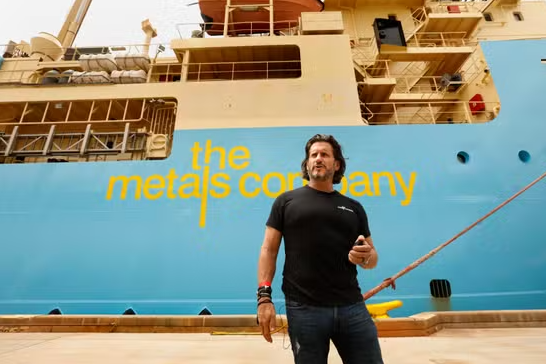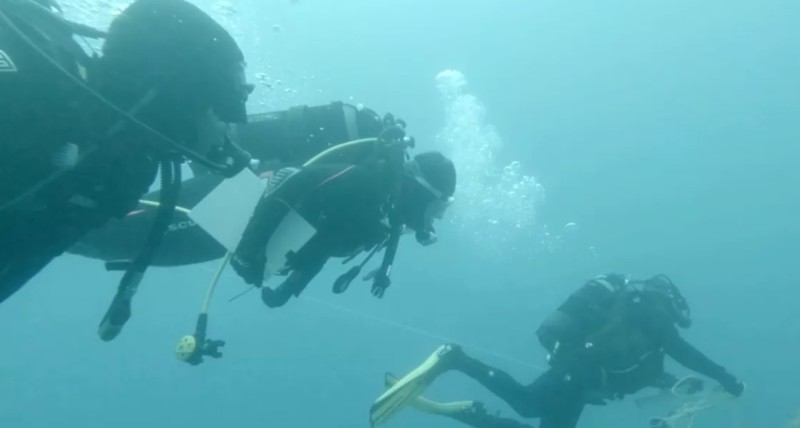The company is enticing investors with promises of profits from minerals found on the ocean floor and is pushing aggressively to secure an exploitation license, despite environmental risks. However, both the technical feasibility and the profitability of this venture remain highly questionable.
Gerard Barron is almost always seen with a polymetallic nodule in hand—whether showcasing one of these black stones extracted from the abyssal plains during interviews or endlessly rolling it between his fingers while presenting The Metals Company (TMC), the mining firm where he serves as CEO. The Australian in his fifties, with long hair and oversized black-rimmed glasses, is selling a dream to investors: profiting from metals like cobalt and nickel found on the ocean floor—critical materials for battery production.
Publicly traded since 2021, TMC will “without a doubt” be the first company to mine the seabed of international waters, which belong to no state, Barron claimed in early June. Founded in 2011 under the name DeepGreen Metals and headquartered in Vancouver, the company has been promising the imminent start of production for years. These promises, however, have been repeatedly delayed—despite TMC’s mounting pressure on the International Seabed Authority (ISA), the entity responsible for negotiating the mining code that will govern deep-sea exploitation in international waters.
Source: Le monde



